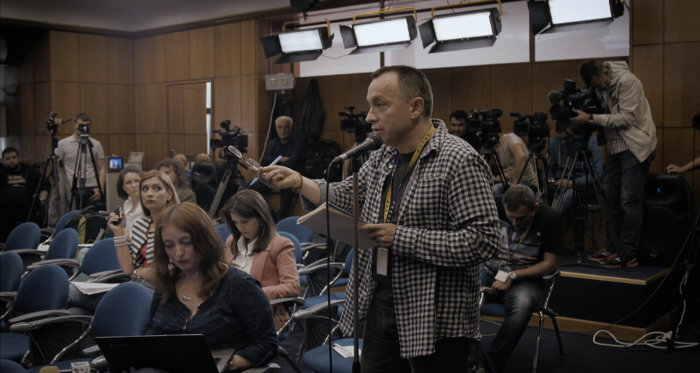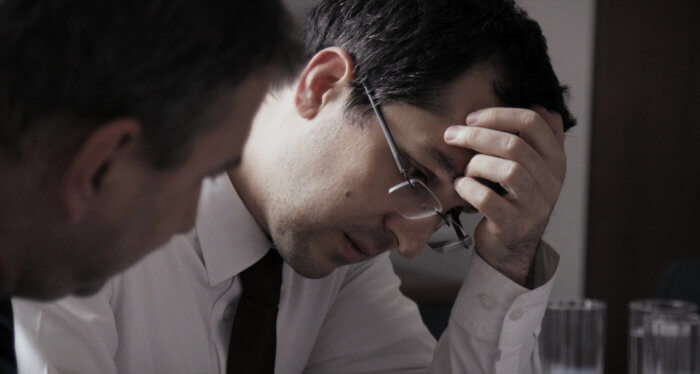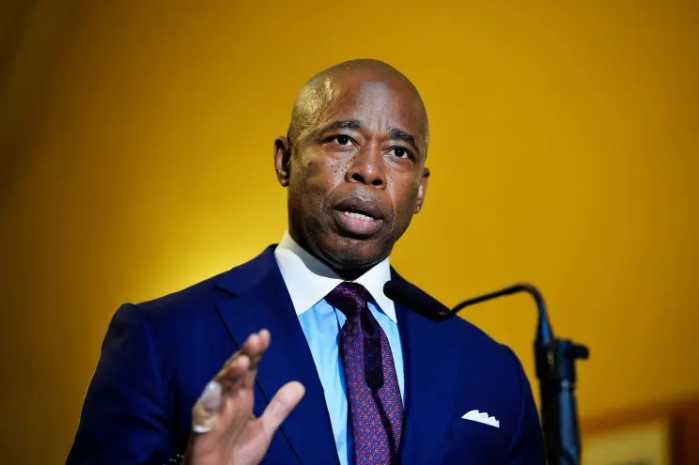Ironically, the Romanian heavy metal band Goodbye to Gravity was finishing an anti-corruption song when its singer noticed that the Colectiv nightclub, where it was performing in 2015, had caught on fire. Sparks started flying, with the blaze quickly going out of control. In a harrowing (but not gory) scene, a woman apparently realizes that her clothes are on fire and screams as she tries and fails to put them out. But the blaze itself wasn’t as deadly as its victims’ hospital stays.
Alexander Nanau’s documentary “Collective” tracks the investigative journalism team led by Catalin Tolontan, editor of the Sports Gazette, as they discover that antiseptic medication had been watered down to one-tenth of its stated strength and burn unit patients were left to die unwashed and covered in maggots.
Twenty-seven people died the night of the fire. Despite the authorities’ reassurances, dozens more died later. Hexi Pharma seems responsible for the diluted meds, but its owner suddenly dies under suspicious circumstances. The Romanian health minister gives his notice.
Alexander Nanau’s Romanian documentary chronicles how a government failed its people’s health
While the first half of “Collective” mostly follows Tolontan, it also devotes attention to Tedy Ursuleanu, a woman who was severely burned in the nightclub, as she poses for photographs and gets used to a new prosthetic hand. In the second half, the focus shifts to Vlad Voiculescu, who suddenly gets promoted to health minister.

The American production company Participant helped get “Collective” made. Participant has come to be identified with socially conscious Oscar bait, including “Spotlight.” One can easily picture a fictionalized version of “Collective,” spoken in English, winning Oscars too. The film celebrates journalists’ dogged work in a way that Americans tend to romanticize, although paying for the conditions under which it can happen is a different story.
The cinematography of “Collective” is pale and autumnal. Its images were caught on the fly. When Voiculescu rides in a car, the camera seems to have been stuck to the window of the driver’s seat. You can make a connection between the vision of Romania offered by “Collective” and 2000s Romanian New Wave films like “The Death of Mr. Lazarescu.” Nanau shines a light on the reality behind their mordant wit. The Romanian government stopped funding cinema because it thought the Romanian New Wave and its popularity at arthouses and festivals around the world made the country look backwards. (On that note, when I interviewed Israeli director Amos Gitai years ago, he said, “A country that’s secure about itself doesn’t need propaganda.”)
“Collective” shows a nation whose impostor syndrome carries a body count. The country may promote a Westernized image of itself, but its leaders are lying when they claim that its medical care is as good as German hospitals. In fact, one hospital prevents a father from transferring his son to Vienna for treatment in order to save face. Romanian healthcare looks like a grift. Sound relatable? The initial fire echoes the deaths of 100 people at a Rhode Island concert by the rock band Great White in 2000, and Americans can imagine even the healthiest victims getting bills for tens of thousands after release from the hospital.

The second half of “Collective” loses some of its propulsive force. Voiculescu comes off as a nerdy technocrat, rather than a driven investigator. But even if he knows how to speak the language of bureaucracy, his good intentions are stymied and the cycle of corruption rolls around again. At least Ursuleanu is able to take charge of her body, posing for art that shows her burn scars while refusing to depict her as a helpless victim.
Nanau had an amazing amount of access to his subjects. He was able to glean the high points from months of governmental meetings. He also spent months around the Sports Gazette’s office, following the initial high points of the investigation. “Collective” is likely to get more attention than the usual Romanian film from Americans both because of the parallels with our own health care system’s deadly dysfunction and the way it was shaped into a narrative. Juggling the three story threads, Nanau shows a society learning that not everything is as it seems and figuring out whether real change is possible.
COLLECTIVE | Directed by Alexander Nanau | Participant/ Magnolia Pictures | In Romanian with English subtitles | Streaming beginning Nov. 20 at collectivemovie.com
To sign up for the Gay City News email newsletter, visit gaycitynews.com/newsletter.











